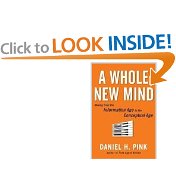This is a tremendous, absolutely superb example of what “citizen intelligence” can mean in the world today. Two individuals have come together to thoroughly investigate the RFID (Radio Frequency Identification) marketplace, and they have published a book that is nothing short of brilliant in its detail, its notes, its photos, and its objectives.
They have even embedded in the book the fundamentals of mass psychology, and found two “hooks” for spreading fear of RFID among Jews (calling it the modern equivalent of the Yellow Star, which makes light of the Holocaust in this context) and fundamentalist Christians (calling it the Mark of the Beast that preceeds the apocalypse, also a step too far, in my view). My goodness-a two-woman CIA/Special Operations PSYOP unit!
On balance, the book is a superb technical review of what is possible and what is planned, and it is also seriously oversold and out of context. There is no question but that many companies, aided by the US Government, are planning for very intrusive tracking of individuals and their purchases. At the same time, the book ignores what is called a “path loss” obstacle (need for short-range transmitter to plugged in receiver), they ignore the ready availability of counter-measures (including aluminum foil, which they do mention in passing), and they fail to understand the severe challenges to massive data mining.
The book is somewhat out of context. While it enjoyes a superb Foreword from one of my five hacker/snowcrash heros, author Bruce Sterling, and it is full of unquestionably serious information, it is also oblivious to books like “The Long Emergency,” or “PowerDown,” and hence it fails to see that while RFID may be a pervert's dream and a Hitler-esque opportunity, the coming Great Depression is likely to bury most RFID applications as unaffordable.
There is much that is good about RFID that the authors leave unsaid. As companies like BreakAwayLtd.com advance reality games, RFID could allow citizens to understand how many child labor hours went into a product, or how much cheap oil was wasted on a product, or–as WIRED Magazine noted a few issues ago–actually tell a potential buyer “If you eat me I will kill you.”
The authors have performed a brilliant public service–I am absolutely totally admiring of what they have done–but the book must be understood to be somewhat unbalanced. Apart from not discussing the good of RFID as a logistics and cost of goods/return on investment capability, the authors also do not discuss the greatest danger within RFID data, that of ignorant programmers and stupid assumptions.
They do a very fine job of discussing how RFID can lead to a depersonification of services–a “smart” medical cabinet replacing a nurse, for example.
Throughout the book they offer quotes from great works or great speakers that are very good contributions to their work, and they also do a superb job of summarizing the RFID industry's spin and slur defenses against the kind of fact-finding and public disclosure that this excellent work embodies.
They conclude that the US Senate and the US Executive have “sold out” to the RFID industry, but that the consumer taxpayer can indeed stop RFID in its tracks by boycotting. They offer a thoughtful list of possible actions by any individual at the end of the book, and if they have one lament, it is that the RFID industry may be right about anticipating the “apathy” of the citizen taxpayer, and being able to implement it vision of persistent surveillance of all individuals and all things.
As an intelligence professional, long critical of the excessive investments in satellite collection (for example, the moronic current new system that will cost $9 billion and not add any substantive new capability), I have a note to myself that RFID is the private sector's tarpit–RFID is to industry what secret satellites were to government: a sucking chest wound into unreal amounts of cash will go, with little to show for it beyond the the logistics routing function.
The authors accept financial contributions but are not a 501c3. I believe that the best way we can honor them and help them is by buying their book. I have done so. Very worthwhile.









